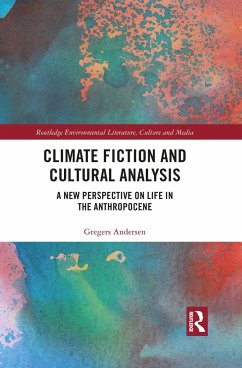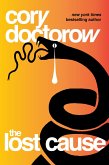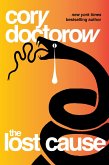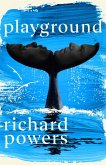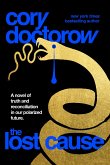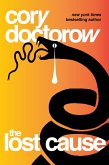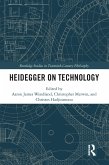Climate Fiction and Cultural Analysis argues that the popularity of the term "climate fiction" has paradoxically exhausted the term's descriptive power and that it has developed into a black box containing all kinds of fictions which depict climatic events and has consequently lost its true significance.
Aware of the prospect of ecological collapse as well as our apparent inability to avert it, we face geophysical changes of drastic proportions that severely challenge our ability to imagine the consequences. This book argues that this crisis of imagination can be partly relieved by climate fiction, which may help us comprehend the potential impact of the crisis we are facing. Strictly assigning "climate fiction" to fictions that incorporate the climatological paradigm of anthropogenic global warming into their plots, this book sets out to salvage the term's speculative quality. It argues that climate fiction should be regarded as no less than a vital supplement to climate science, because climate fiction makes visible and conceivable future modes of existence within worlds not only deemed likely by science, but which are scientifically anticipated.
Focusing primarily on English and German language fictions, Climate Fiction and Cultural Analysis shows how Western climate fiction sketches various affective and cognitive relations to the world in its utilization of a small number of recurring imaginaries, or imagination forms.
This book will be of great interest to students and scholars of ecocriticism, the environmental humanities, and literary and culture studies more generally.
Aware of the prospect of ecological collapse as well as our apparent inability to avert it, we face geophysical changes of drastic proportions that severely challenge our ability to imagine the consequences. This book argues that this crisis of imagination can be partly relieved by climate fiction, which may help us comprehend the potential impact of the crisis we are facing. Strictly assigning "climate fiction" to fictions that incorporate the climatological paradigm of anthropogenic global warming into their plots, this book sets out to salvage the term's speculative quality. It argues that climate fiction should be regarded as no less than a vital supplement to climate science, because climate fiction makes visible and conceivable future modes of existence within worlds not only deemed likely by science, but which are scientifically anticipated.
Focusing primarily on English and German language fictions, Climate Fiction and Cultural Analysis shows how Western climate fiction sketches various affective and cognitive relations to the world in its utilization of a small number of recurring imaginaries, or imagination forms.
This book will be of great interest to students and scholars of ecocriticism, the environmental humanities, and literary and culture studies more generally.

